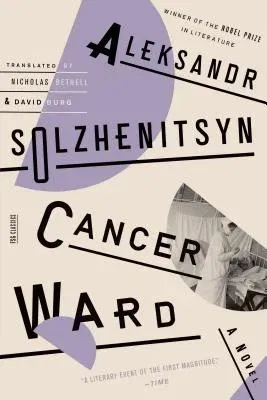Aleksandr Solzhenitsyn
(Author)Cancer WardPaperback, 14 April 2015

Qty
1
Turbo
Ships in 2 - 3 days
In Stock
Free Delivery
Cash on Delivery
15 Days
Free Returns
Secure Checkout

Part of Series
FSG Classics
Print Length
544 pages
Language
English
Publisher
Farrar, Straus and Giroux
Date Published
14 Apr 2015
ISBN-10
0374534713
ISBN-13
9780374534714
Description
Product Details
Author:
Book Format:
Paperback
Country of Origin:
US
Date Published:
14 April 2015
Dimensions:
20.83 x
13.72 x
3.56 cm
ISBN-10:
0374534713
ISBN-13:
9780374534714
Language:
English
Location:
New York
Pages:
544
Publisher:
Series:
Weight:
453.59 gm